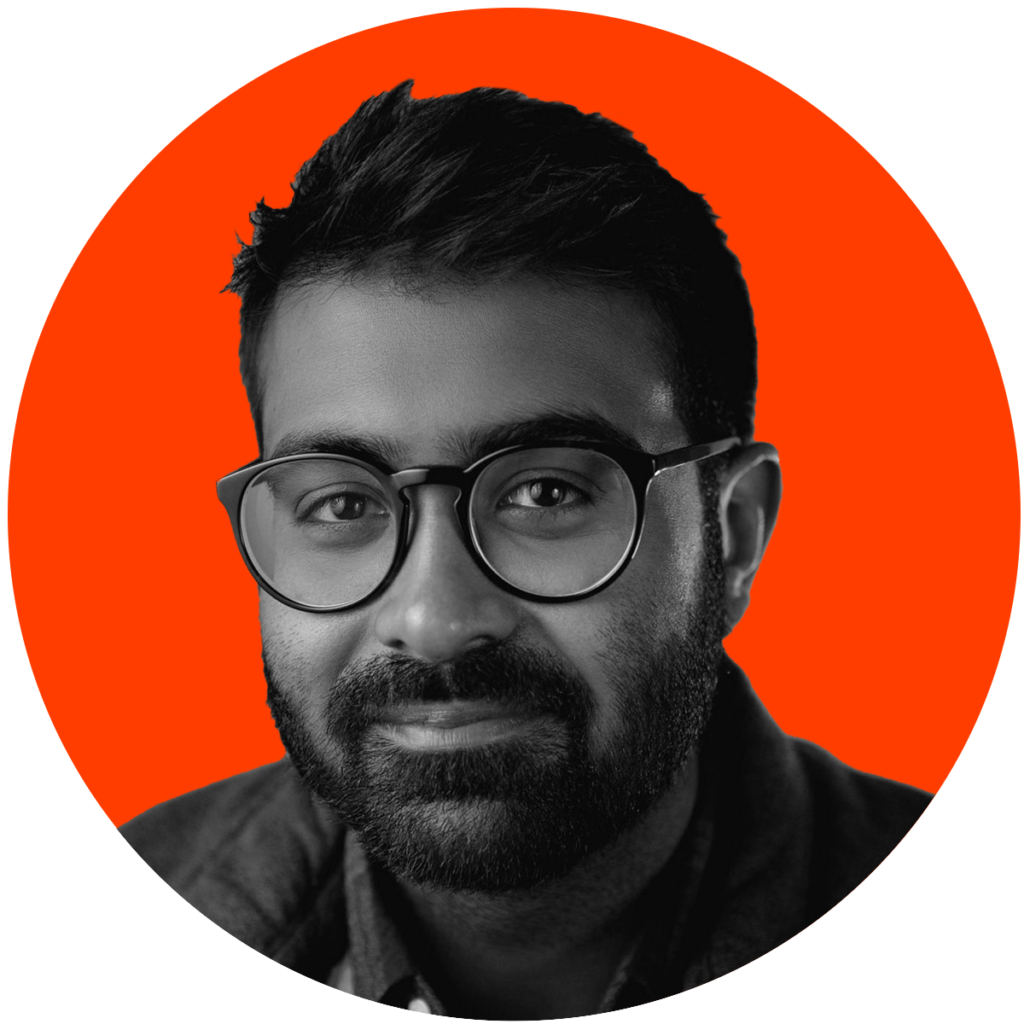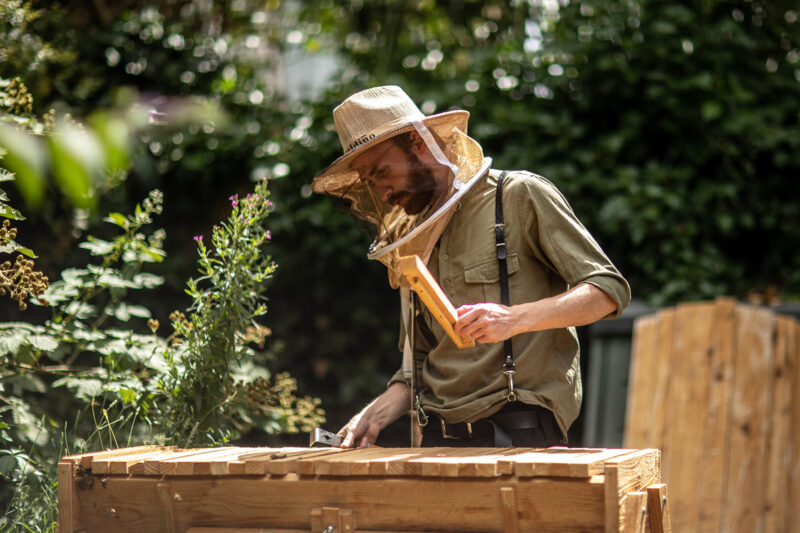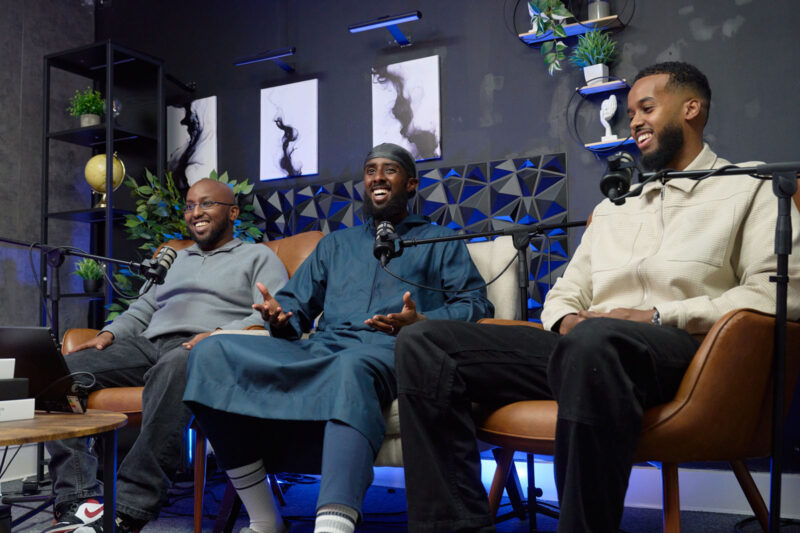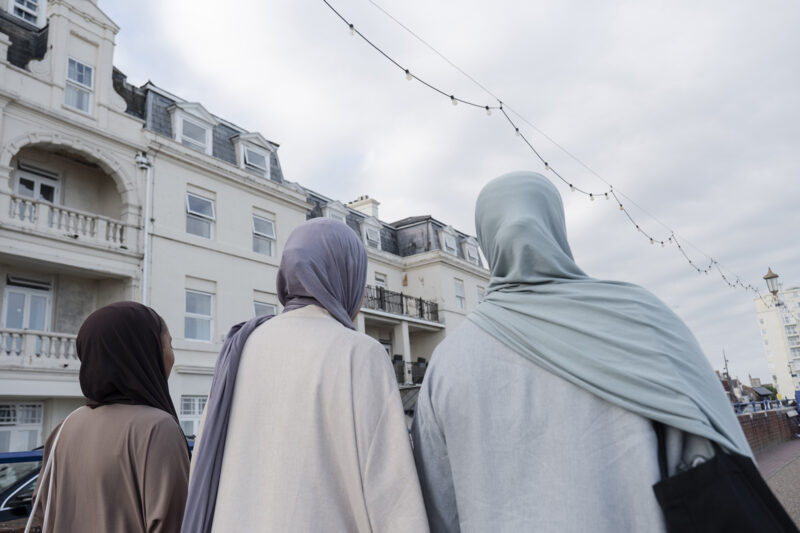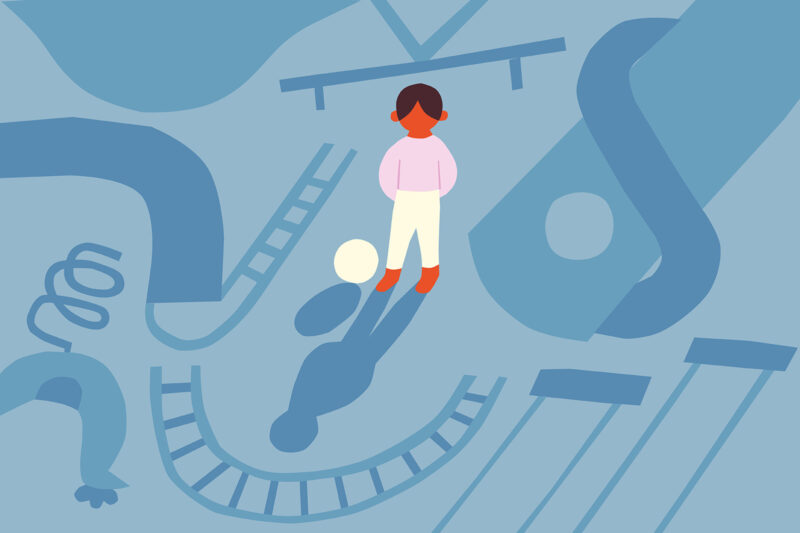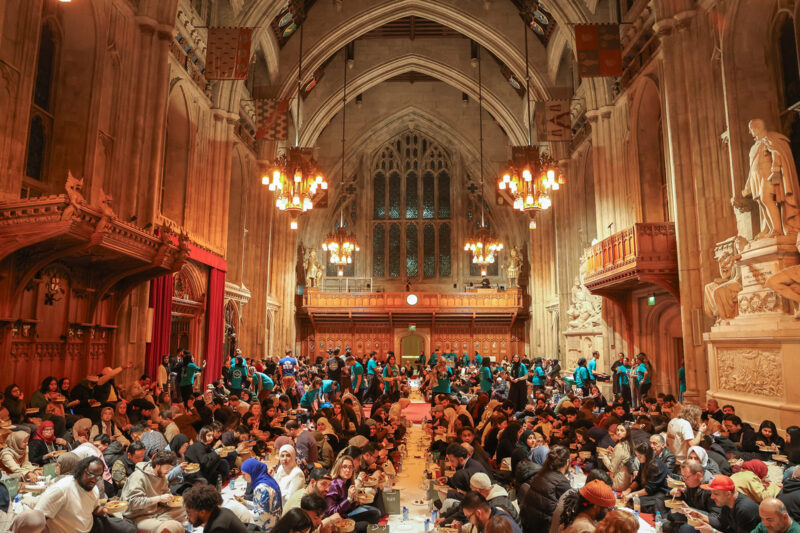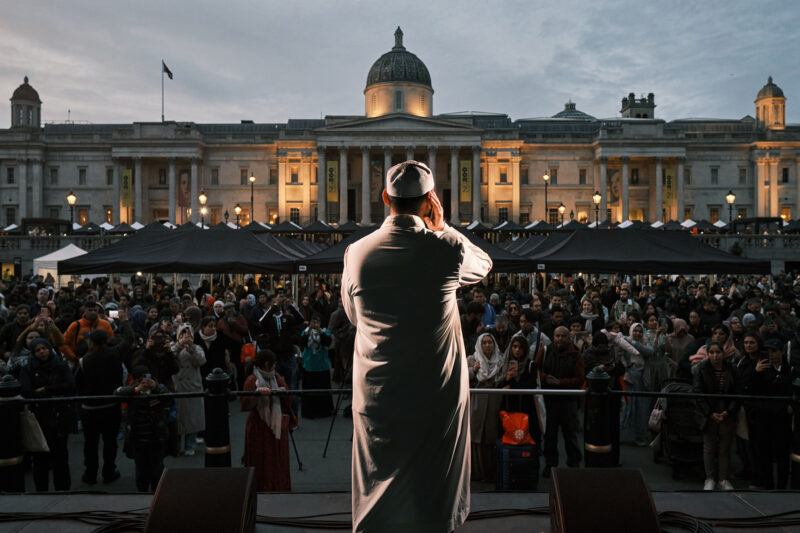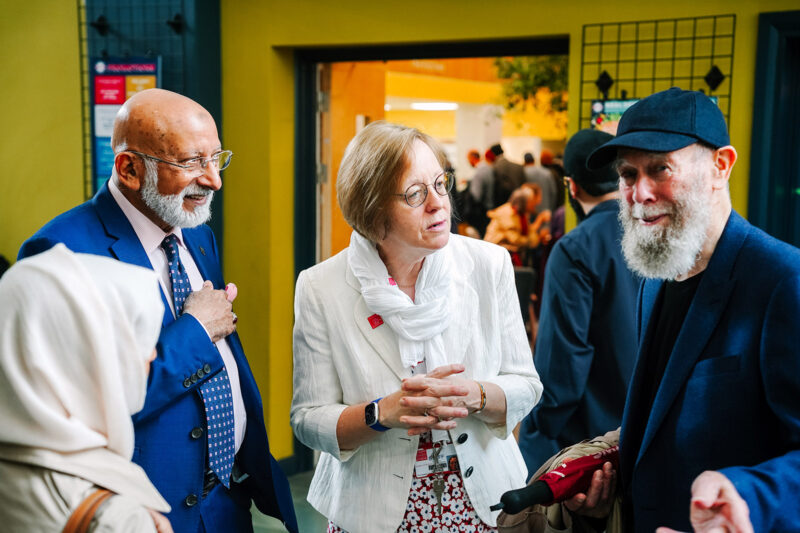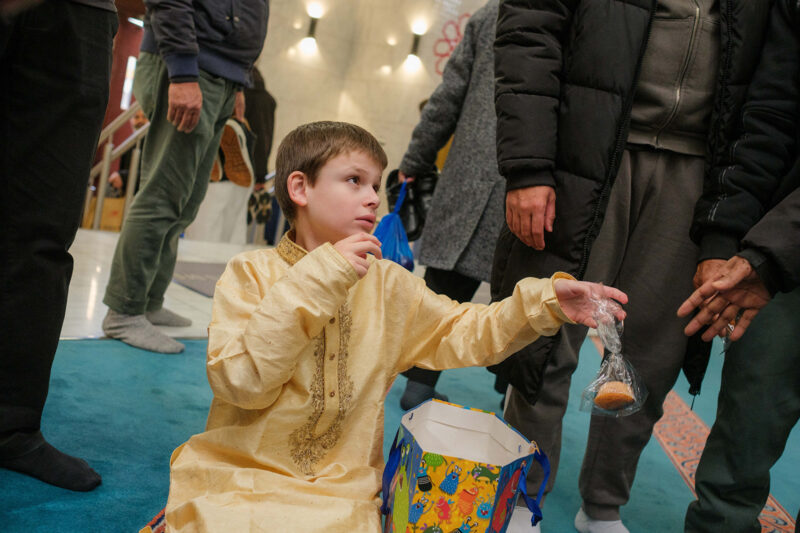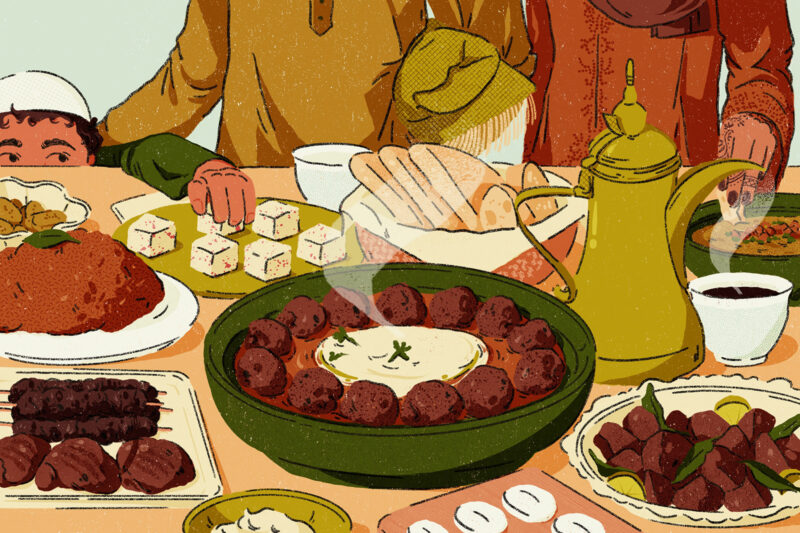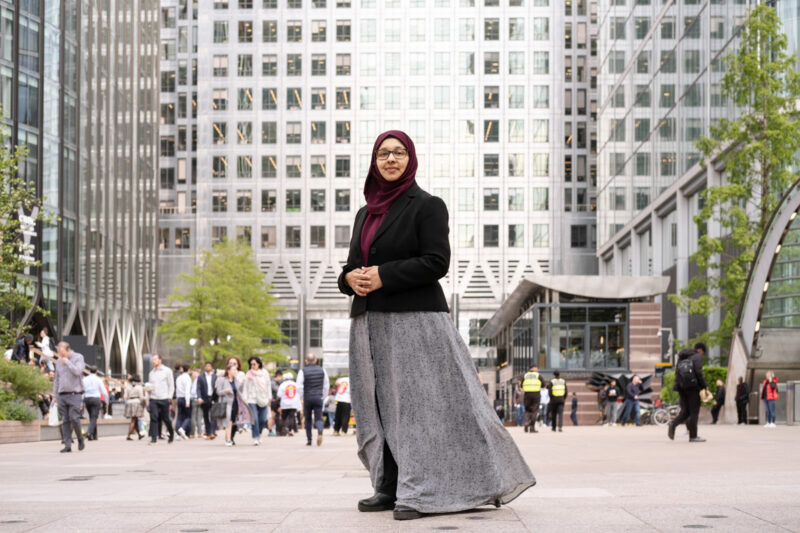Muslim Redditors are doomscrolling their way to a spiritual crisis
A terrifying online world of environmental apocalypse and social collapse is driving some young people to question their faith
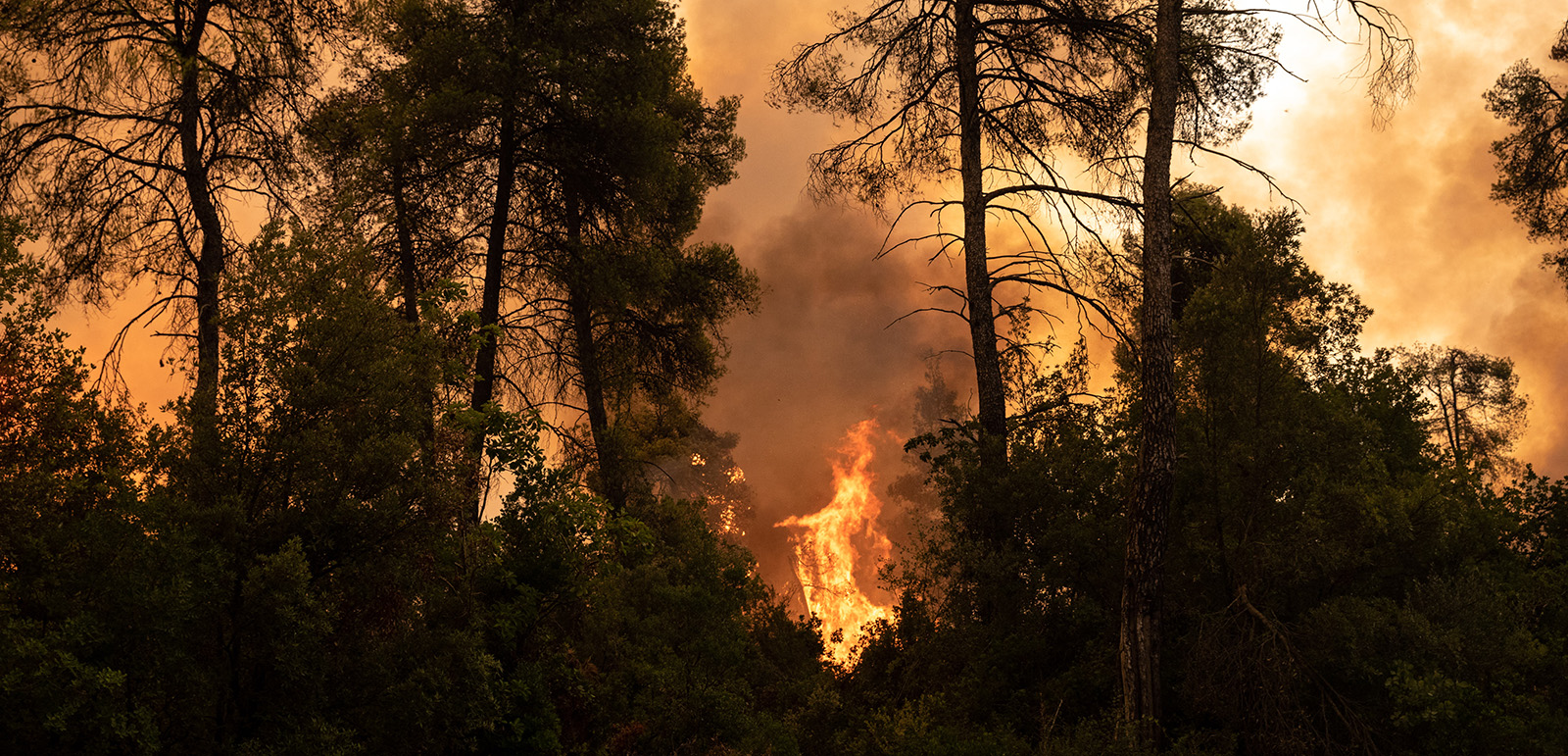
Hamza Rehman used to be big on routines. For years he woke up before dawn to pray, then gulped down a glass of water with a sprinkle of salt and a slice of lemon. For 10 minutes he stretched, then did five minutes of breathing exercises. Whatever the weather, he would run the same three-mile route through Victoria Park in east London. He even ate the same lunch daily: tuna nicoise salad from Pret a Manger with a dash of peri-peri sauce.
In 2019, however, the rigid structure of Rehman’s life crumbled. Like most others across the country, the office where he worked as a business technology consultant was forced to close by Covid-19 lockdowns, meaning that he had to work out of his small flat near Bethnal Green. As the virus spread, Rehman became distracted by an endless stream of online news documenting the rising death toll. As the amount of time he spent on Twitter and Instagram increased, he read more and more stories of people, including two of his cousins, losing loved ones.
Rehman, now 30, knew that the relentless stream of horrifying news was affecting his health. He was struggling to sleep and often eating only one meal a day. He performed poorly at work, owing to late nights spent glued to a screen, and stopped waking up for morning prayers. In fact, he stopped praying entirely. Every time he tried to, all he could think of was what he had been reading online.
Still, he couldn’t stop.
It’s likely that you know someone like Rehman. Throughout the pandemic, there was a marked increase in news consumption. While many readers simply wanted to keep abreast of current events, others appeared to deliberately seek out the bleakest and most unsettling stories. The compulsive consumption of apocalyptic content was quickly given a name: doomscrolling. While research into the phenomenon is still in its early stages, some psychologists suggest that such behaviour is a natural consequence of the way social media algorithms exploit our deepest fears.
Jamie Cohen, a digital culture expert and assistant professor at CUNY Queens College, New York, believes that “doomers” have long been a part of internet culture. Think back to the late 1990s, when they filled message boards with narratives of impending chaos, owing to peak oil and the millennium bug. The key difference, he says, is that the apocalyptic outlook embraced by some young people today doesn’t stem from half-baked conspiracy theories. It is based on real-world events and backed by an overwhelming body of credible scientific evidence.
“They’ve realised they’ve inherited a broken world,” he explains. “They have accepted that collapse — whether climate, financial, or societal — is inevitable and that there is nothing they can do about it.”
It wasn’t just the pandemic that preoccupied Rehman. Friends he played online video games with introduced him to a section of the social media website Reddit titled r/collapse. Many of its half-million subscribers believe that, owing to the irreversible effects of climate change and the failings of late-stage capitalism, the total breakdown of civilisation is all but inevitable in the coming decade.
Scroll through r/collapse and it’s easy to understand why Rehman felt so hopeless. The community’s highest-rated posts often detail the demise of humanity. Whether it’s ice caps melting as a result of record global heating, the advance of new bacterial infections or an impending failure of global agriculture, the world is portrayed as disintegrating at such a breakneck speed that any attempt to prevent it is futile.
“I’d be on the subreddit for hours a day,” Rehman says. Even though he knew that reading so much terrifying news was having a detrimental effect on his mental health, he believed that knowledge was better than “being ignorant”.
“I felt like my friends and family were in denial about what was actually happening,” he says. “They kept telling me that Covid was temporary and would go away, and that the climate catastrophe was exaggerated.”
The most frustrating thing was that his parents refused to take seriously what he had learnt, insisting that all he needed to do was pray. “I believed they were using Islam as a way of saying that my anxieties about the real world weren’t important,” he remembers.
Religion isn’t talked about much on r/collapse. When it is, most conversations are usually led by US-based posters from Christian backgrounds, many of whom have chosen to leave their faith altogether. Some believe that the religious communities they came from have no practical answers to global catastrophes, and, in the case of those from heavily evangelical, conservative states, that they actively support policies harmful to the environment in the hope that they will eventually prove their interpretations of scripture correct.
Yawm al qiyamah, or the day of judgment, has always been central to Islamic theology and a central component of the early religious education of Muslims such as Rehman. Ideas of what the end times will look like vary between sects and cultures, but common prophecies include bloody wars, endless natural disasters and the unexpected destruction of towns and cities. While the ideas are vague enough to be open to interpretation, many Muslims believe that signs of the end times have already arrived.
“Growing up as a Muslim, you are often reminded about the end times and the day of judgment – it’s part of the Quranic narrative,” explains Dr Sadek Hamid, a research fellow at the Digital British Islam project, based at the University of Wales Trinity Saint David. “Islamic teachings use notions of apocalypse to emphasise God’s forgiveness and the possibility of human salvation through belief.”
Online communities such as r/collapse, however, can pose a challenge to such understandings of apocalypse. Within them, the idea of the end of the world no longer exists in the imagination — it can be seen playing out in real time.
Unlike the former Christians on r/collapse, Rehman never considered leaving Islam entirely. But he believes that doomscrolling did erode his faith. Where Islam and his usual routines had once provided comfort and stability, he was spending nights alone in his flat, watching videos of police violence, devastating floods and victims of war in Yemen and Palestine, wondering why God hadn’t protected them. He was furious with Muslim countries such as Saudi Arabia which, he believed, were claiming to be bastions of Islam while advancing global climate disaster by continuing to extract and export fossil fuels.
“If being a Muslim meant having to see the Saudis as authorities, I wasn’t sure if I wanted to be part of that,” he says.
Rehman expressed his anxieties to other religious members of r/collapse, most of whom were Christian and Jewish, on the community’s private Discord server. There, they discussed the challenges they faced. On the one hand, they saw ignorance and naivety within religious groups “more interested in the minutiae of scripture than talking about the present crisis”. On the other hand, many felt they would be mocked by atheist members convinced that religion itself is a central cause of the world’s problems.
It’s unclear how many Muslims members of r/collapse exist, but Rehman is unlikely to be the only one. Halima, 21, from Manchester, describes herself as a “lurker”, who reads message boards but doesn’t post. Last year, as the UK experienced record high temperatures, she went down an “online rabbit hole”, investigating the consequences of global heating.
After finding r/collapse via a Google search, she found herself mesmerised. “It got really bad at the end of last year,” she remembers. “I would wake up and immediately go on the subreddit. Next thing I knew, I’d be crying because I’d read that a species of bird was about to go extinct.”
Halima now uses blocking software to limit the amount of time she spends reading r/collapse. While it has helped her manage the overwhelming feeling of dread she experienced, her engagement with the community continues to influence her worldview in ways that conflict with her faith.
“As a Muslim woman, I’m expected to get married and have children, but I don’t think I can bring a child into this world, knowing everything I know now,” she says.
While that sentiment is echoed by many users on the subreddit, for Halima the potential decision to remain childless has possible spiritual consequences. Some interpretations of Islam suggest that if a married couple are able to conceive a child then they are obliged to do so, and deliberate abstention can be deemed a sin.
Research suggests that existential threats such as the climate crisis tend to reinforce religious belief, and even bring more people into organised religion. But Hamid believes that the dominance of social media as a news source could have the opposite effect for many young people.
“They have a feeling of loss of control, and a sense of helplessness,” he says. “They don’t feel that they can do anything. These are global matters, above them, and the internet can make them realise that they have such limited capacity for change.”
He adds that, if left unchecked, such feelings could result in “more young Muslims feeling detached from Islam, feeling that it doesn’t speak to their daily realities, and possibly leaving it altogether”.
One way to address the issue, he considers, is for imams to discuss the climate crisis and environmental problems in khutbahs and sermons. “Environmental consciousness is really quite absent from popular discourse in mosques, despite the global consequences,” he says. “If mosques aren’t treating the climate catastrophe as one of their most important issues, even as experts say that it is only going to get worse over the coming decade, then they are not serving worshippers properly.
“At the end of the day, a lot of young Muslims need theological reassurance, they need guidance, and they also need to know that they, and their families, have a future.”
Over the past few months, Rehman has been weaning himself off r/collapse and has developed a new set of routines. He has returned to his office, alongside his colleagues, allows himself one hour a day to read the news, has deactivated most of his social media accounts and writes in a journal every evening.
At a friend’s recommendation, he has also started volunteering at a community garden in east London, which allows him to do something constructive and keeps him away from his phone. “I didn’t want to mope around, I wanted to do something useful,” he says.
Rehman also credits the garden with helping him better embrace his faith. When he plants seeds, he is reminded of a verse in the Qur’an in which people are commanded to become “caretakers of the Earth” and to take responsibility for protecting the environment.
That one verse, he says, has challenged the pessimism he has felt for so long and made him consider the possibility that small personal acts can have far-reaching consequences. “If everyone grew and looked after one plant, that could make such a big difference,” he says. “It could change lives.”
 Newsletter
Newsletter

